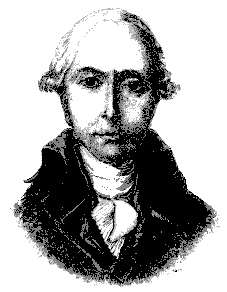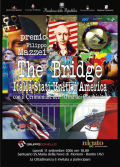Yesterday’s personalities: Filippo Mazzei's life and works
Filippo Mazzei

Born in Poggio Caiano in the Grand Ducky of Tuscany, on December 25, 1730, and died in Pisa on March 19, 1816. He was an intellectual, doctor, surgeon, traveller, teacher, trader, smuggler, grower, soldier, diplomatic and politician. Better known in the overseas countries as Philip Mazzei or Philip Mazzie.
An Italian citizen who deserved honours and glory all over the world, and understood in the best possible way his epoch’s political and social changes. For a long time ignored in Italy (as the saying goes, nemo propheta in patria), he was belated appreciated by the emission of a stamp dedicated to him.
His history in brief
After his studies in Prato and Florence, this young scion of a well-known family of wine growers came into conflict with his brother about the management of the family farm. As a consequence of his obstinate and restless personality, in 1752 he moved to Livorno, where he became a doctor. Feeling shackled in Livorno, as well as in the Grand Ducky, he flew just two years later to Smirne where he became a surgeon. However, even the horizons of a decadent Turkey didn't conform to his worldview, so after a short time he arrived in London.
Here he faces and solves brilliantly his first financial difficulties, working as an Italian teacher; ten years later he became a rich insider of the middle class, thanks to his activities as a dealer and importer of Mediterranean products. In London he met Benjamin Franklin and Thomas Adams, who later invited him to move to the New World. In 1773 Mazzei lands in Virginia, dragging a group of Tuscan farmers with him.
With the help of his ideal and pen pal Thomas Jefferson (a companionship lasted forty years), he planted the first vineyard in Virginia, at that time still an English colony. The common debates and ambitions with one of the most significant future fathers of the American homeland, Jefferson, leaded Mazzei to publish some essays about freedom and equality, and some of his sentences are quoted in the United States Declaration of Independence. Unfortunately, olive trees and vines in his plantation didn’t survive to Virginia’s winter rigours. It was a considerable financial damage, but also a fluke for Mazzei’s glories, who could dedicate himself entirely to politics.

Later on he became a Virginia naturalized citizen, and joined the first volunteers in the American Revolutionary War; in 1778 Jefferson sent him to Europe to ask for loans and smuggle back to the colonies the weapons that were essential to the Cause. In 1783 he came back to Virginia and found that he was not appointed ambassador. Feeling down and, reacting as a real “bad Tuscan” as he was, he had his back turned to the new land and came back definitely to Europe.
Here he was attracted by Napoleon Bonaparte and followed with great attention his rise and fall.
A brave and modern man, he followed the latter trends and did his utmost for the USA freedom and independence. His thought inspired the American Constitution. Somebody even states that the stars and stripes flag are a fruit of his intuitions and follow Hugh of Tuscany’s standard.
Works

Galleries

Your suggestions
 Fondazione Mediterraneo
Fondazione Mediterraneo
"The Bridge - Filippo Mazzei" prize
www.euromedi.org

